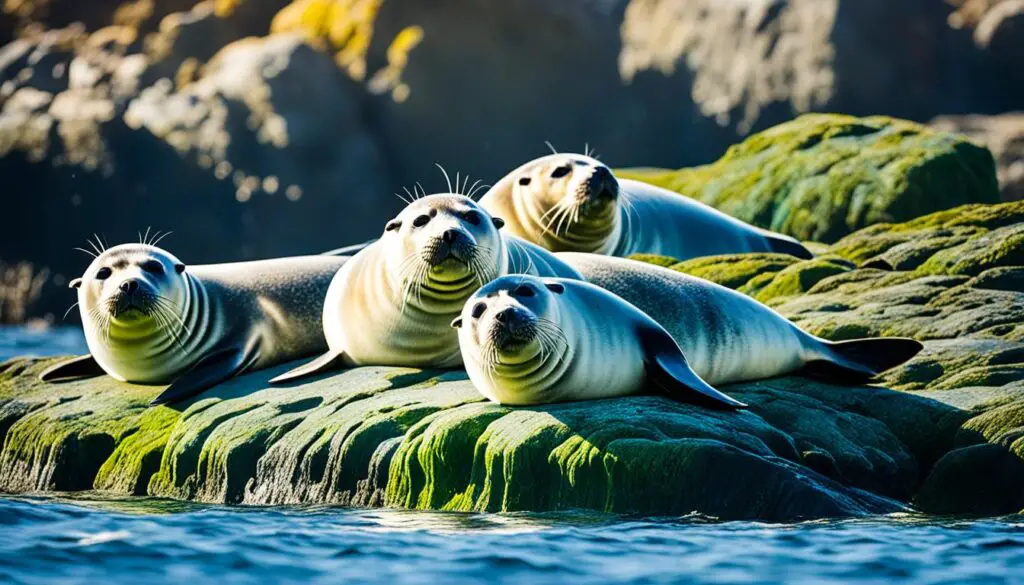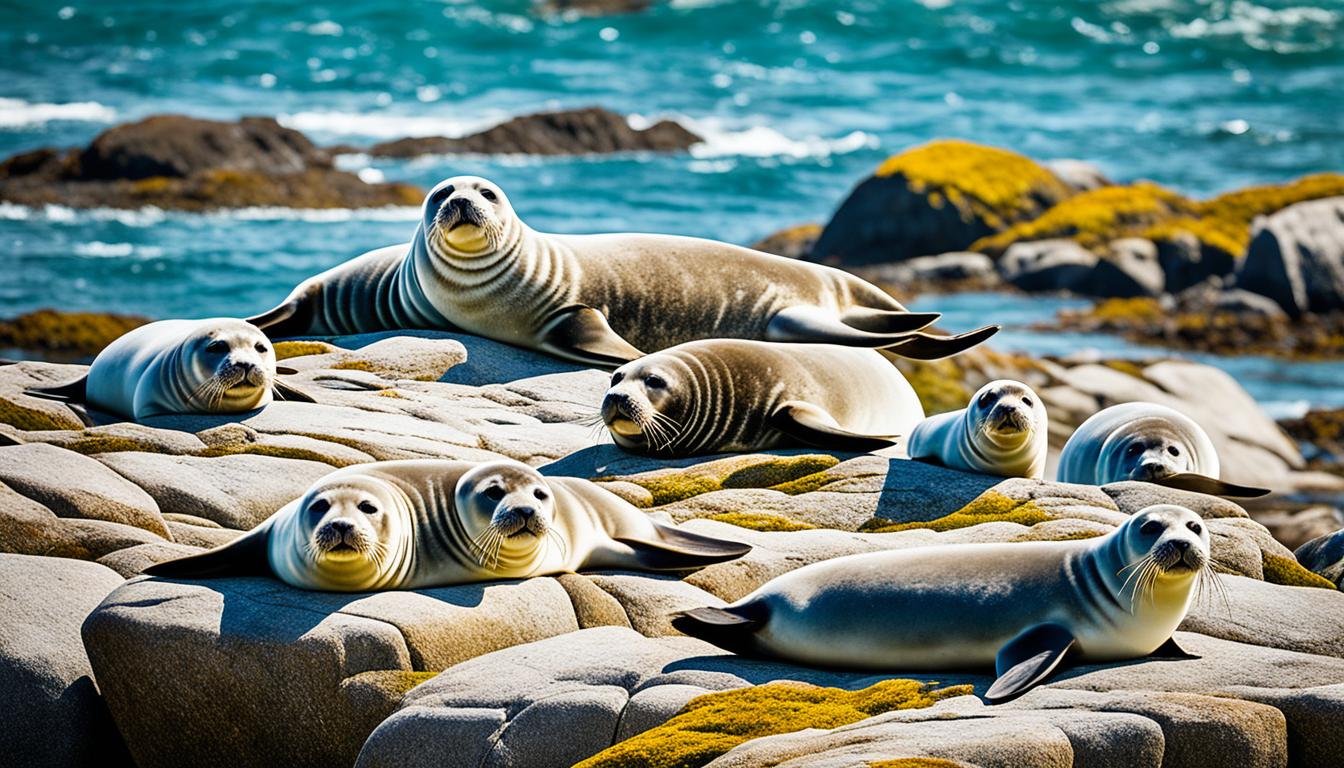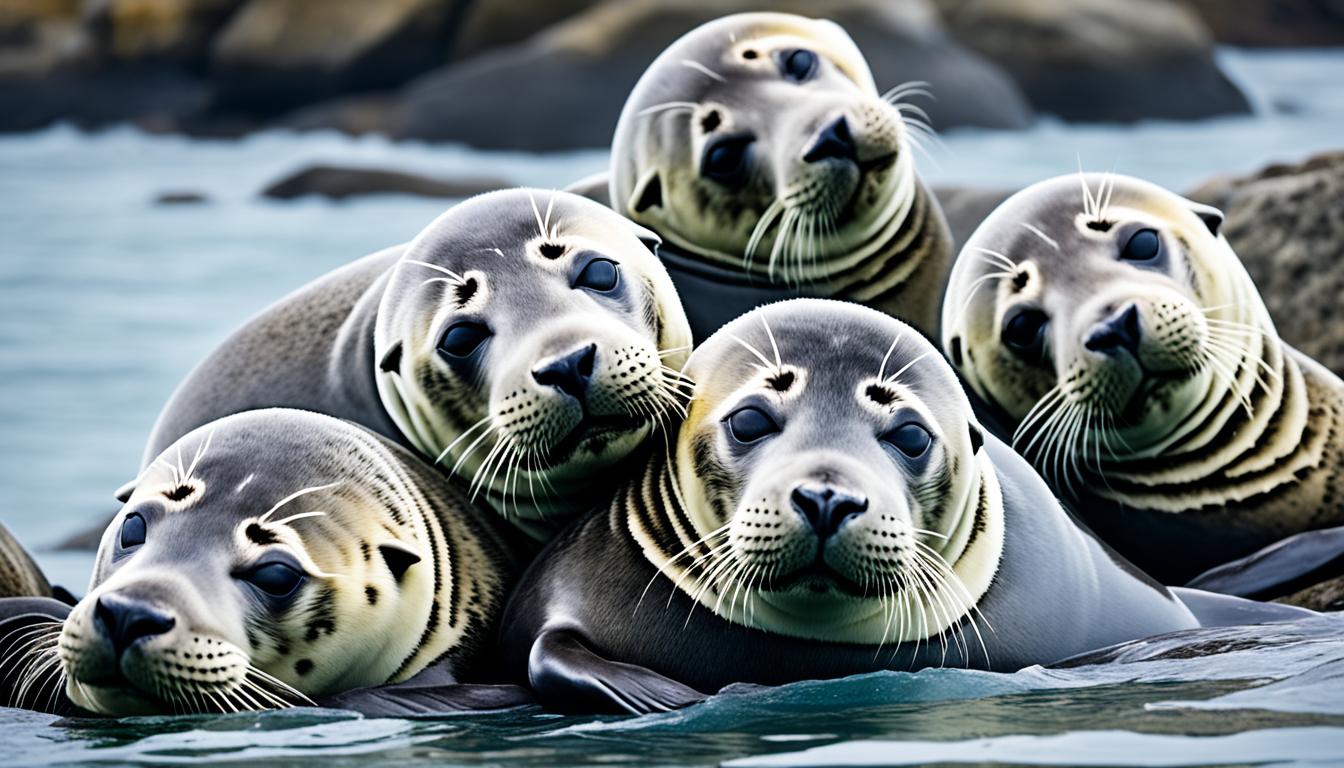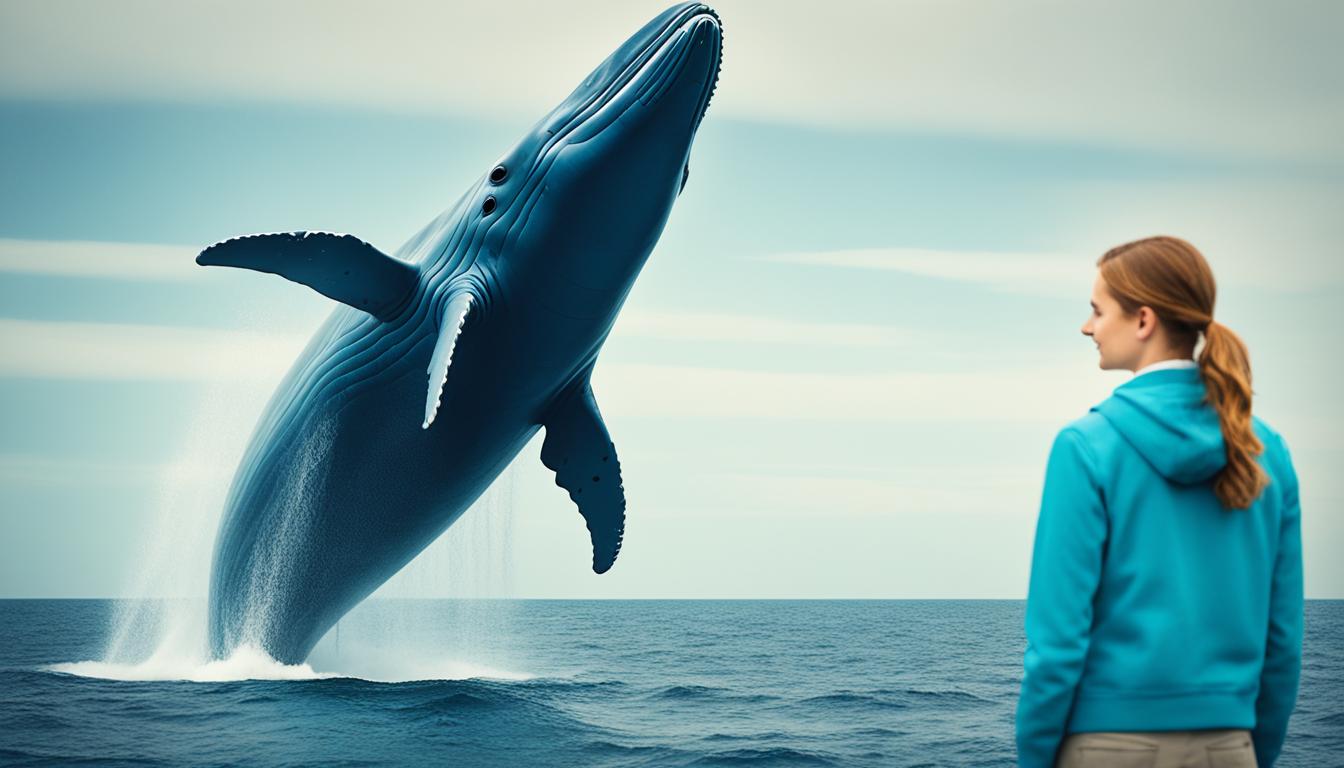Have you ever wondered why seals sunbathe on rocks? It’s not just for fun. They do it for warmth, skin health, and to hang out with friends. Seals sunbathe to keep their body temperature up after being in cold water.
This helps them stay warm and also boosts their immune system. They get vitamin D from the sun, which is key for their health. Plus, sunbathing on rocks is a safe spot for them to rest and enjoy the sun without worrying about predators.
This behavior shows how closely seals are connected to their marine world. It also shows they need both physical and social well-being.
The Importance of Sunbathing for Seals
Sunbathing is key for seals. It helps them stay healthy and survive. They spend time in the sun to improve their health.
Physical benefits of sun exposure
Sunbathing helps seals in many ways. It keeps their body temperature right. After being in cold water, the sun helps them warm up.
This keeps them healthy and saves energy. UV rays also make their skin healthy. This is important for their fur, which keeps them warm.
Role in thermoregulation
Seals need to control their body temperature. Sunbathing helps them do this. It keeps them from getting too cold in the winter.
This shows how well they know their environment. It helps them live in different marine places.
Why do seals sunbathe on rocks?
Seals often pick rocks to sunbathe because they offer many benefits. One big reason is that rocks are high up, making it easier to see predators or disturbances in the water. This helps keep the seals safe while they rest and get some sun.
Being on shore, seals can also hang out with their friends. Rocks are great for this because they don’t move and are solid. During breeding seasons, sunbathing helps seals stay warm and also helps them keep their social groups strong.
Rocks also keep the sun’s heat, making them perfect for seals to warm up. This warmth is important for their health and helps them manage their energy better.

Seals Basking Behavior in Marine Habitats
Seals bask in the sun to live and rest in coastal areas. These spots are perfect for them to soak up the sun and keep warm. Species like California sea lions, harbor seals, and northern fur seals live in different places.
Common coastal seal species and their habitats
Each seal species has its own way of basking. Here’s a quick look at some main species:
| Coastal Seal Species | Preferred Habitat | Sunbathing Location |
|---|---|---|
| California Sea Lions | Rocky shores and piers | Rugged rocks and warm surfaces |
| Harbor Seals | Sandy beaches and coves | Flat sandy areas and tidal zones |
| Northern Fur Seals | Remote islands and offshore | Exposed marine areas and rocky ledges |
Interaction with other marine wildlife during basking
Seals often meet other sea creatures while basking. This shows how they share their home with many others. Fish, birds, and other seals join their social groups.
This interaction keeps seals alert and ready to defend their space. When they sunbathe, they use social skills and adapt to their environment. These actions help them survive and stay connected with others.
Understanding the Sunbathing Habits of Seals
Seals sunbathe based on several important factors. Weather is a big factor; they sunbathe more in the cold to get warm. On hot days, they seek shade to cool down. Food and their health also affect how much they sunbathe.
Factors influencing sunbathing frequency
Knowing what affects seals’ sunbathing helps us understand their environment better. They often sunbathe when food is scarce. Health also plays a role; healthy seals sunbathe to keep their body temperature right.
Behavioral adaptations during sunbathing
Seals have smart ways to sunbathe. They change their position to get more sun or switch between sun and shade to stay comfortable. Learning about their sunbathing habits helps us protect them and their habitats.









